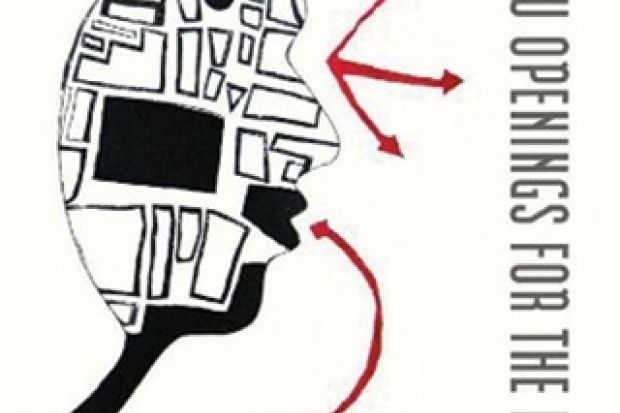This is a gallant, fluent, very ambitious and formidably well-read book. Its authors are geographers of great distinction. One of them, a British vice-chancellor, is a moral example to his fellows; they are alike in their ease of reference to any polity in the developed world and the associated scholarship dealing with the doubtless fragmented but always plentiful and optimistic cadres of radical and left-inclined groups and quasi-movements. Indeed, one of the strongest planks hammered into their platform is their account of the variegated, colourful and sheerly populous bands of the merry men and women now roaming the forest picking off outliers of the forces of darkness, oppression, exploitation and hateful inequality.
To speak thus at a time when Leftish political parties are so tepid, so lacking in guts, let alone simple policies, should be such as to stop the mighty roar of political argument. These two men haven’t the time to review either local shadow opposition or loopy sects of the order of the People’s Front of Judea. They are intent on naming the currents of resistance and the way such well-used metaphors as tides, waves, surges and small eddies declare for the future “an ethic of generosity” to be detected in even the most fractious of Left activity.
They press on with this momentous task in an idiom of imperturbable good manners, truly astonishing breadth of reference and, it must be said, sweeping generality. This last quality is a product of their grandly ecumenical purpose, but for those less well-read and ill at ease with the abstraction and inclusiveness of vision (to use the contaminated word) commended from the mountain tops, it is apt to tilt them into vertigo. This tendency, however inevitable, in such a book is all the more pronounced when the authors exhort a like-minded audience to fasten theory to practice, to turn from agenda to action.
The closest they come to practical criticism is in the admirable and startling sixth chapter, in which they find much to praise and be hopeful about in the novel, resilient and (mostly) efficacious busyness of the European Union. They distinguish there between “techno-politics and democratic politics”; they set aside inanities such as moving the parliament from Brussels to Strasbourg half a dozen times a year and report instead the many new “mappings” of the continent effected to reveal the contrast in national perspectives upon such inflammatory subjects as immigration, to provide a topology of “togetherness and difference” and of the discrepant distributions of access to information (the Telecities programme). They go on to admire the “imagined community”, impelled by software, which is recreating, by way of the “Infocities” collocation of big cities (begun in Manchester), not the cant of the “network society” but a newly grasped imaginary of that old standby, “cultural heritage”.
Their most daring move is to insist on the theoretic necessity and practical actuality of inextinguishable passions. Supported by the unlikely duo of A.N. Whitehead and Gilles Deleuze, they require of politics, whether in the library or in the street, a recognition of “affect” and its integral presence in the sinews of thought itself. In a way something like Jerome Bruner’s model of conceptual growth, they describe how new political feelings must needs attach themselves to old and familiar lines of “affect”, without the help of which novelty cannot take root. Borrowing the term “structure of feeling” from Raymond Williams, they outline several such imminences presently lacking on the Left but nonetheless incipient in its politics. These might take in the very genesis of desire for “just, equal and responsible ways of being”, or for building a renewed and proper place in our feelings about work itself as more or less satisfying and rewarding. Present rage in Britain at the vile grotesquerie of the salaries awarded by the filthy rich to themselves is ground well tilled for such a change.
This is a fine and rousing book, and required reading for Messrs Miliband and Cruddas. What its heroic authors say is true, timely and damned difficult. But to outface the monster of corporate capitalism, protean, international but nonetheless fissiparous, often cowardly, always corrupt, Ash Amin and Nigel Thrift have contrived this novel and vigorous weapon of dissent, so much required to fight the rough beast of a new epoch now slouching towards Wall Street to be born.
Arts of the Political: New Openings for the Left
By Ash Amin and Nigel Thrift
Duke University Press, 240pp, £62.00 and £15.99
ISBN 9780822353874 and 354017
Published 14 May 2013
Register to continue
Why register?
- Registration is free and only takes a moment
- Once registered, you can read 3 articles a month
- Sign up for our newsletter
Subscribe
Or subscribe for unlimited access to:
- Unlimited access to news, views, insights & reviews
- Digital editions
- Digital access to THE’s university and college rankings analysis
Already registered or a current subscriber? Login




